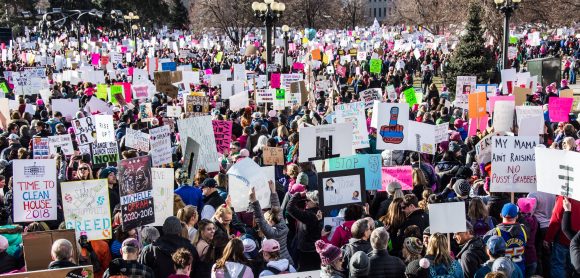
People gather in Civic Center Park for the second annual Women’s March. (Fiona Matson/CU Independent)
A diverse range of people marched through downtown Denver Saturday morning for the second annual Women’s March.
Although it is called the Women’s March, many organizations and individuals used this event as a platform to highlight various social justice issues relevant to other demographics. The LGBTQ community shouted for equal rights, bi-partisan political groups encouraged people to register to vote, religious groups supported their minority neighbors and men marched in solidarity for the women in their lives.
Native Americans traveled from reservations in traditional dresses to bring awareness to social issues affecting indigenous communities. Some marchers even journeyed from foreign countries and other parts of the U.S. to advocate for their citizens’ rights.
“I believe in this march,” said Jose “Pepe” Ortega from San Juan, Puerto Rico. “I believe in the women and I want to give them all the support I can and to let them know this isn’t a local thing. This is international.” Ortega also condemned Trump’s actions and words during the aftermath of Hurricane Maria.
Even young children carried hand-made signs, chanting “racism hurts” and “this is what democracy looks like” with the other protestors.
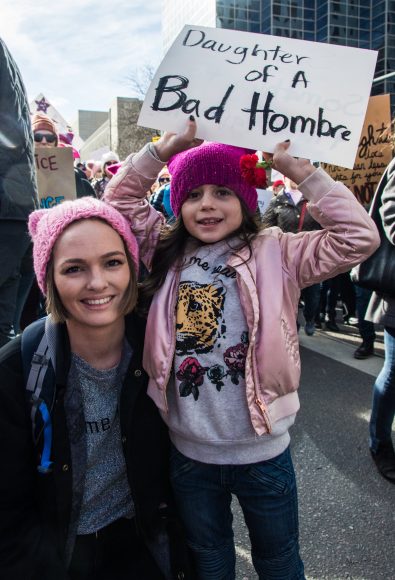
A young girl holds a sign during the Women’s March on Jan 20, 2018. (Fiona Matson/CU Independent.)
The event marked the one year anniversary of Trump’s inauguration, the initial spark for the first march. Unhappy with the tumultuous first year of the new administration, individuals came together to create political and social change, saying that now is the time to act.
Colorado native Julia Varnell-Sarjeant took the extra step of action and is currently running for Colorado State Senate in district 30.
“When you no longer have [a] representative government, it is time to represent yourself on the streets,” Varnell-Sarjeant said.
Some even drew from cultural and literary icons to protest. Denver local Matt Gnojek dressed as Captain America and a group of women dressed as handmaids from Margaret Atwood’s novel Handmaid’s Tale, complete with the white bonnets and red robes.
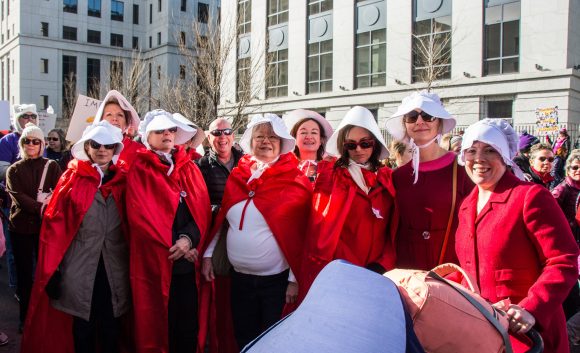
Women dress as characters from the novel, and new Hulu show, “The Handmaid’s Tale” on Jan 20, 2018. (Fiona Matson/CU Independent)
High school English teacher Charlie Gaare, who also teaches Atwood’s book to her class, marched for her students and for herself.
“For the people who physically can’t [be at the march] we are here for you,” Garre said. “We will march for you. And for the people who won’t [protest], we are also fighting for your rights.”
The event closed with various dance and music performances and speakers, from local dance company Bella Diva Dance to social workers and poets, encouraging people to continue with the effort to fight for their rights. Messages of using one’s privilege to help others and the fight for racial and gender equality rang out over the thousands of people gathered in Civic Center Park.
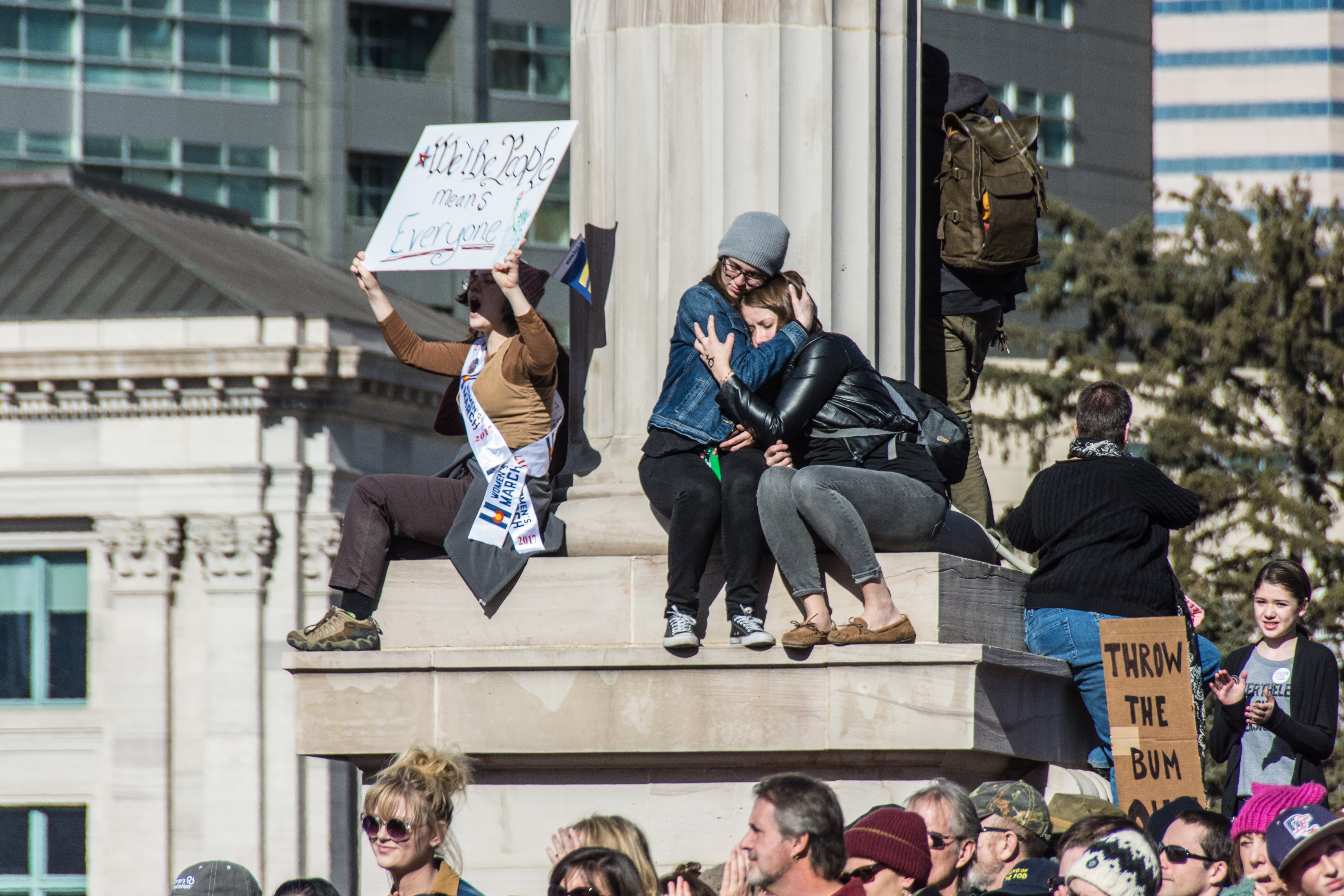
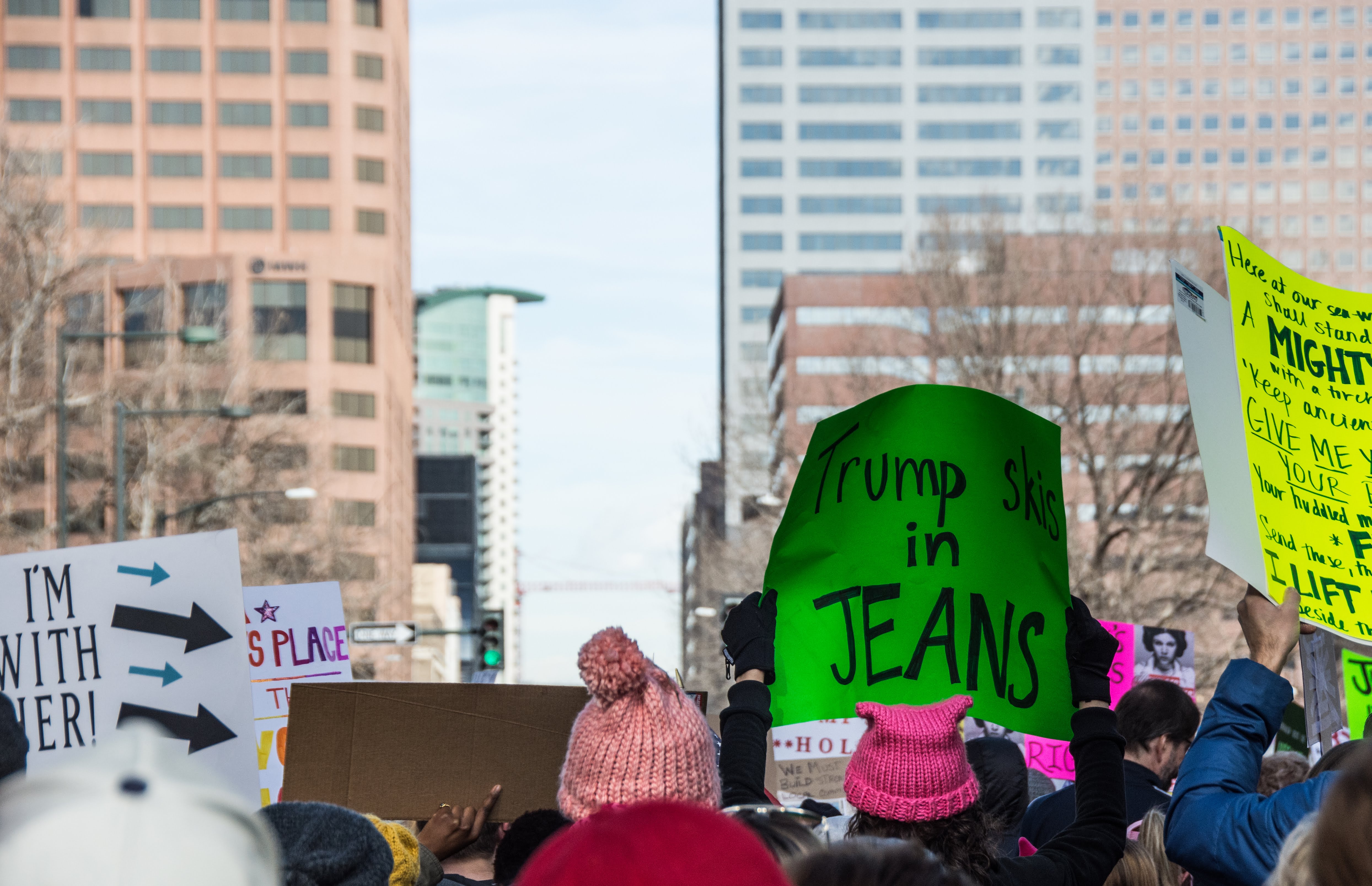
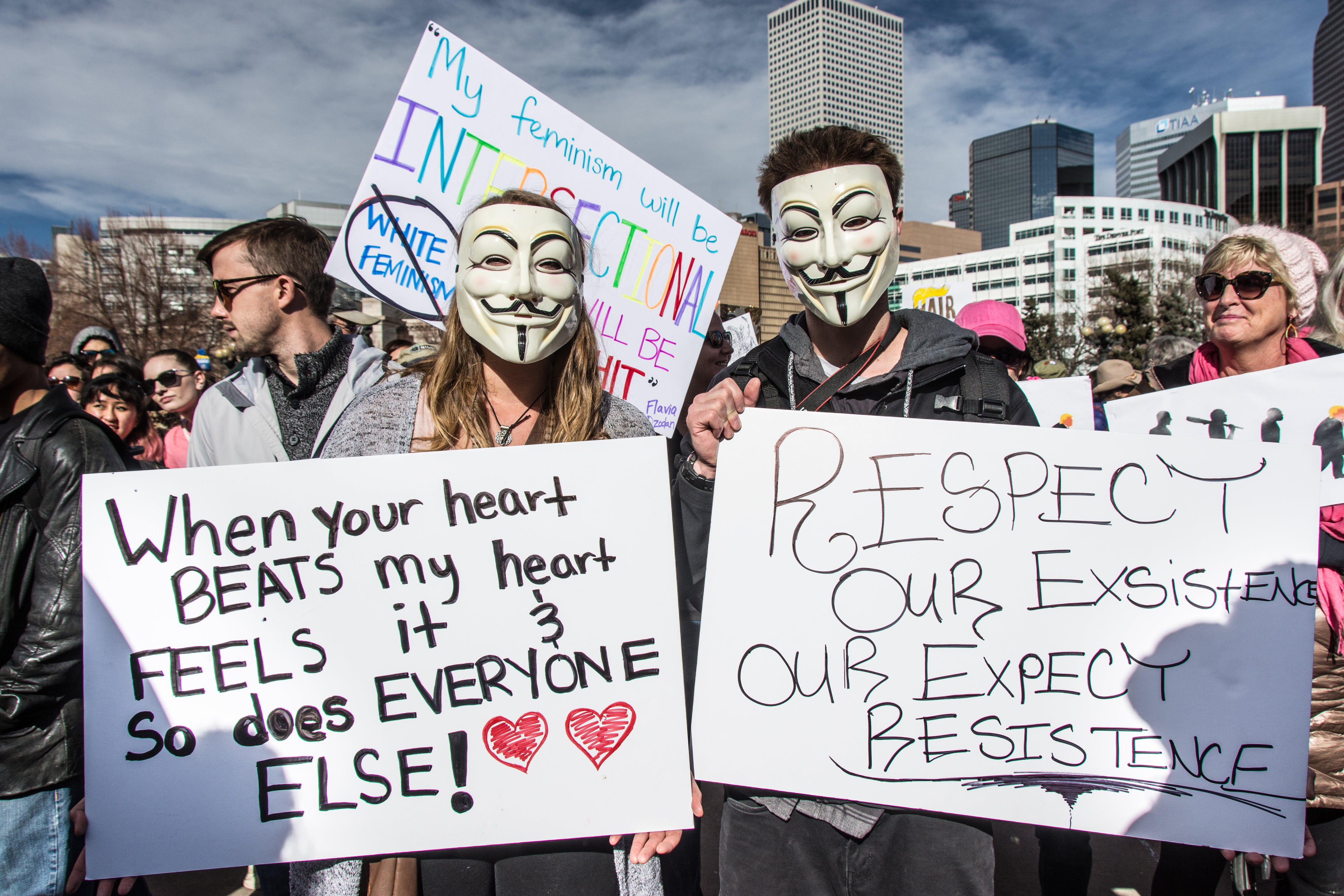
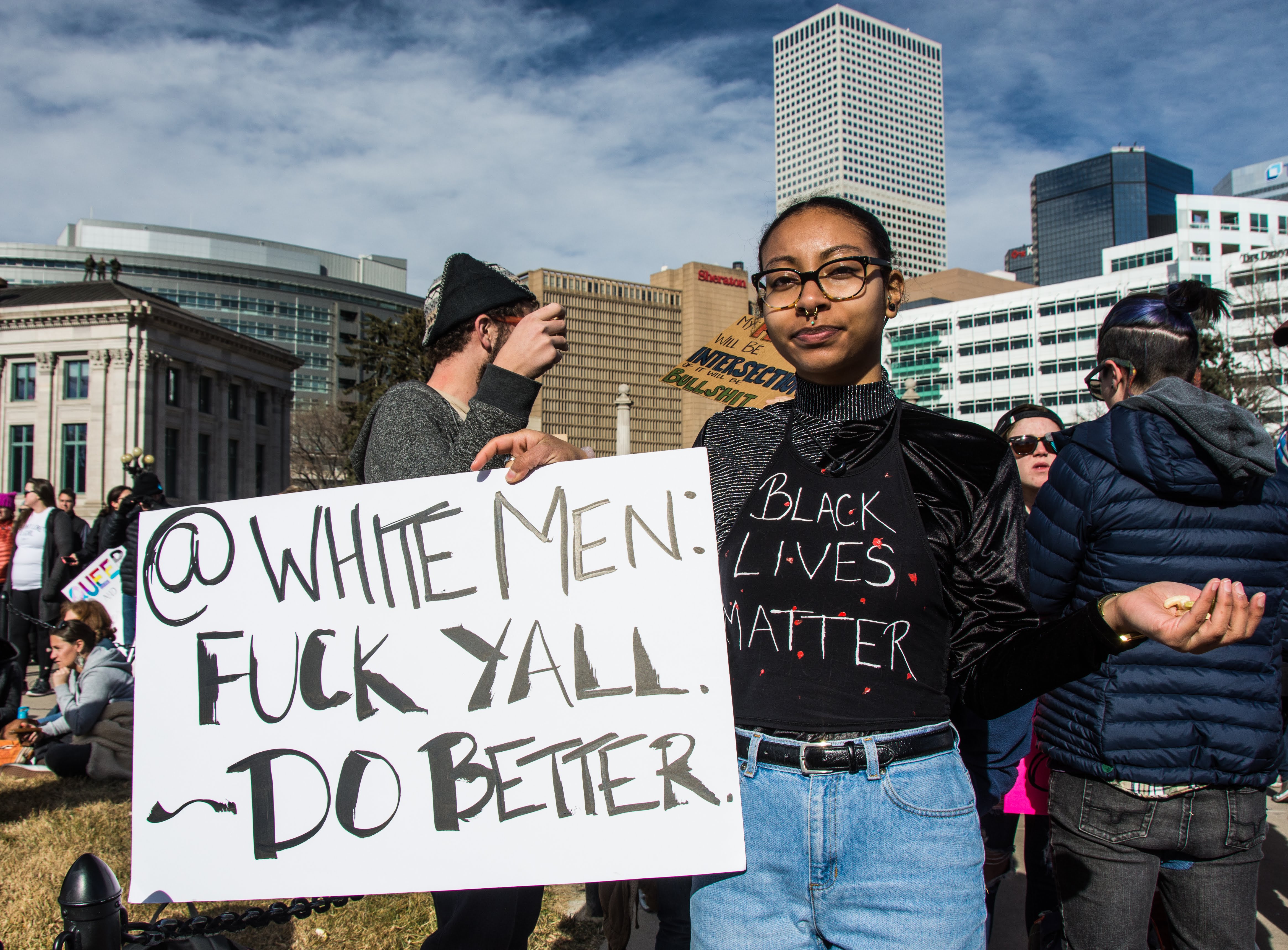

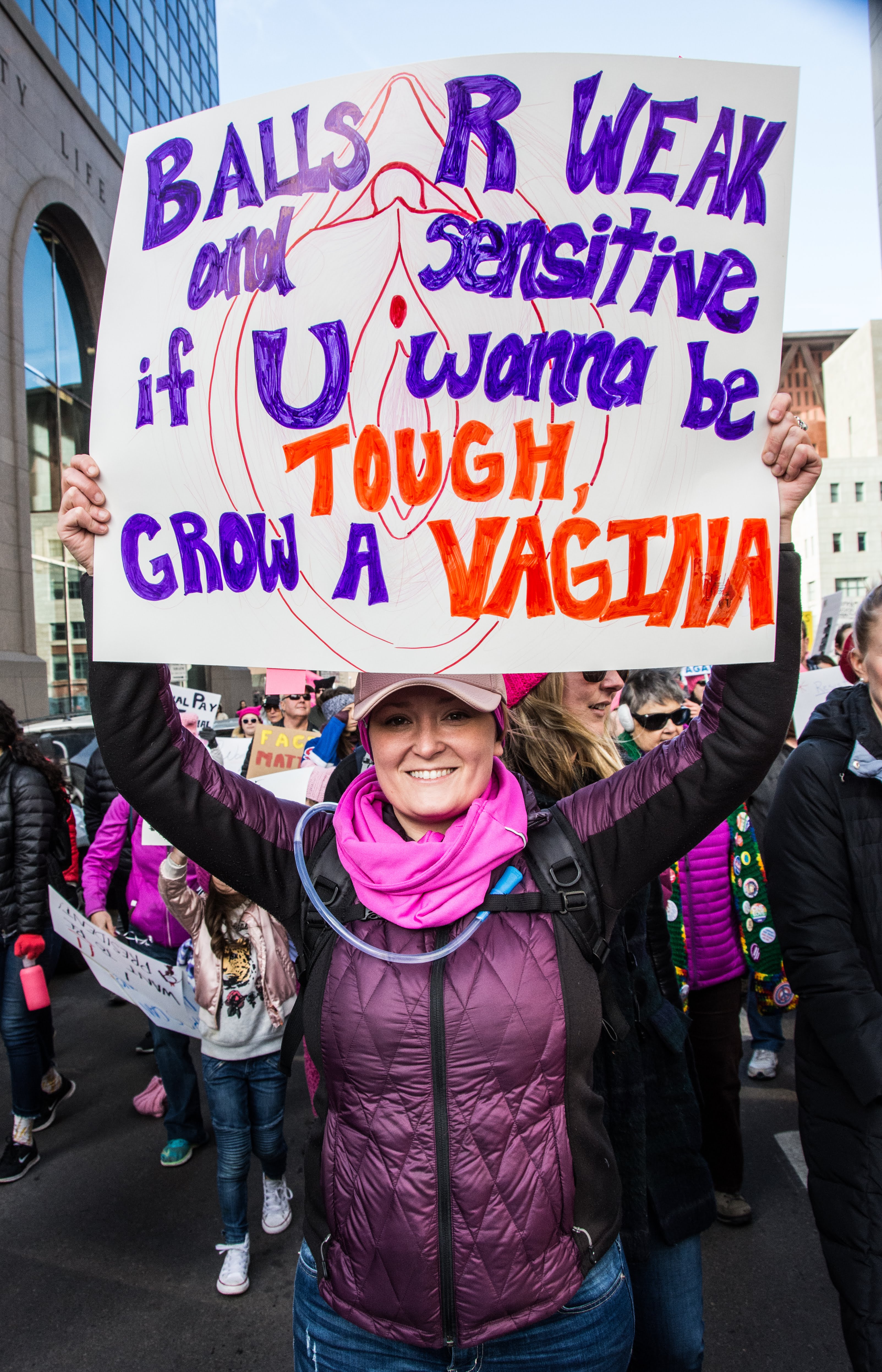
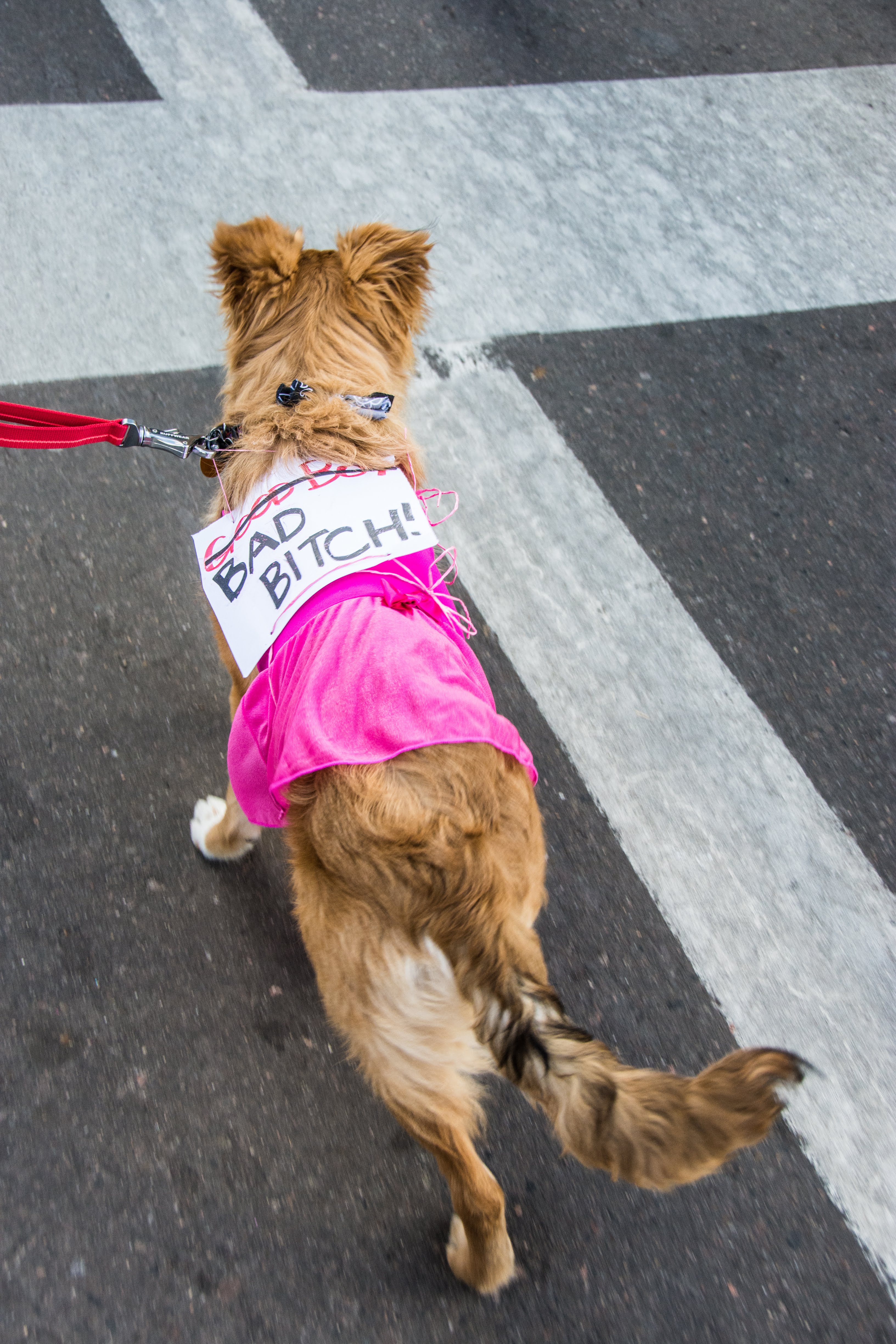
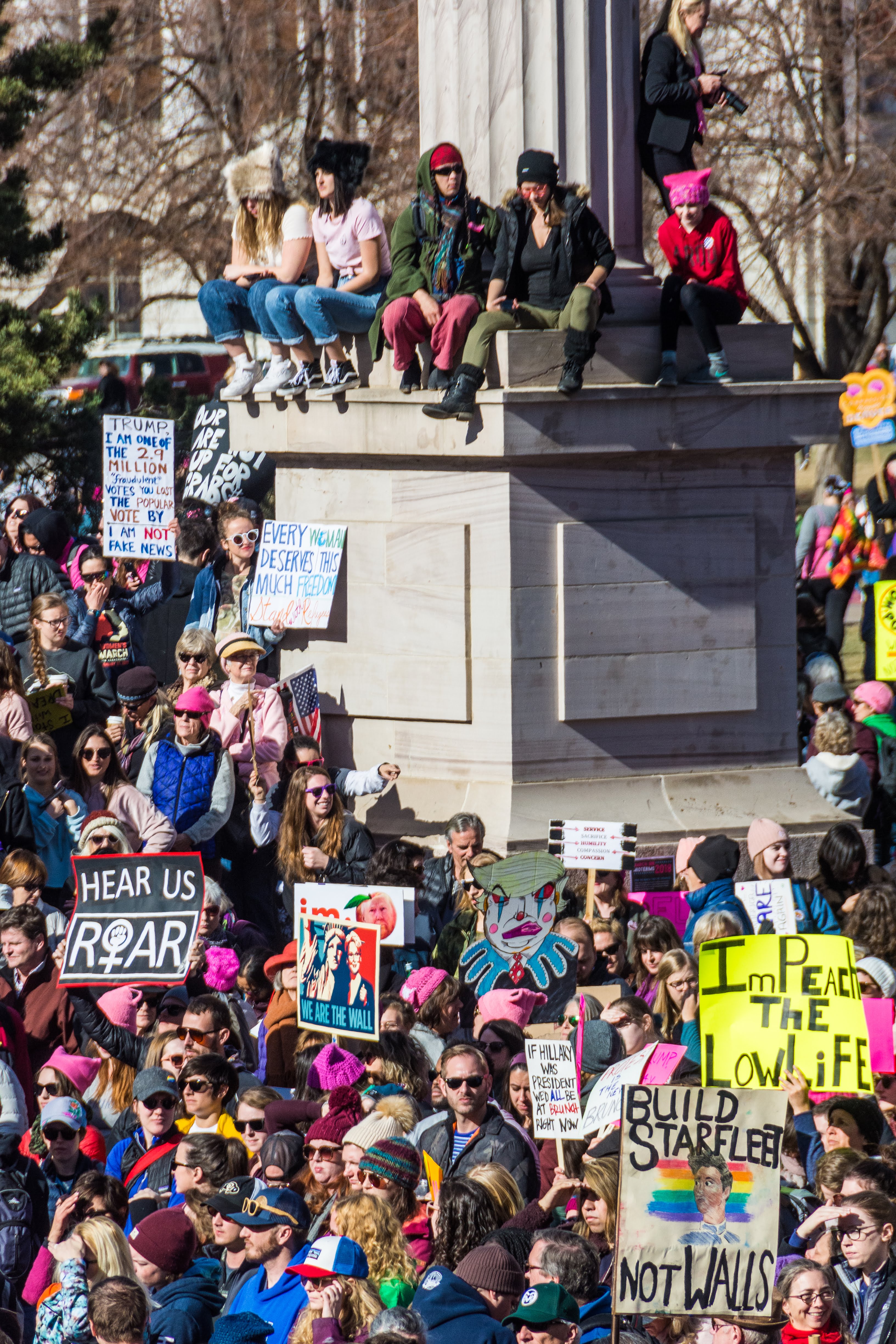
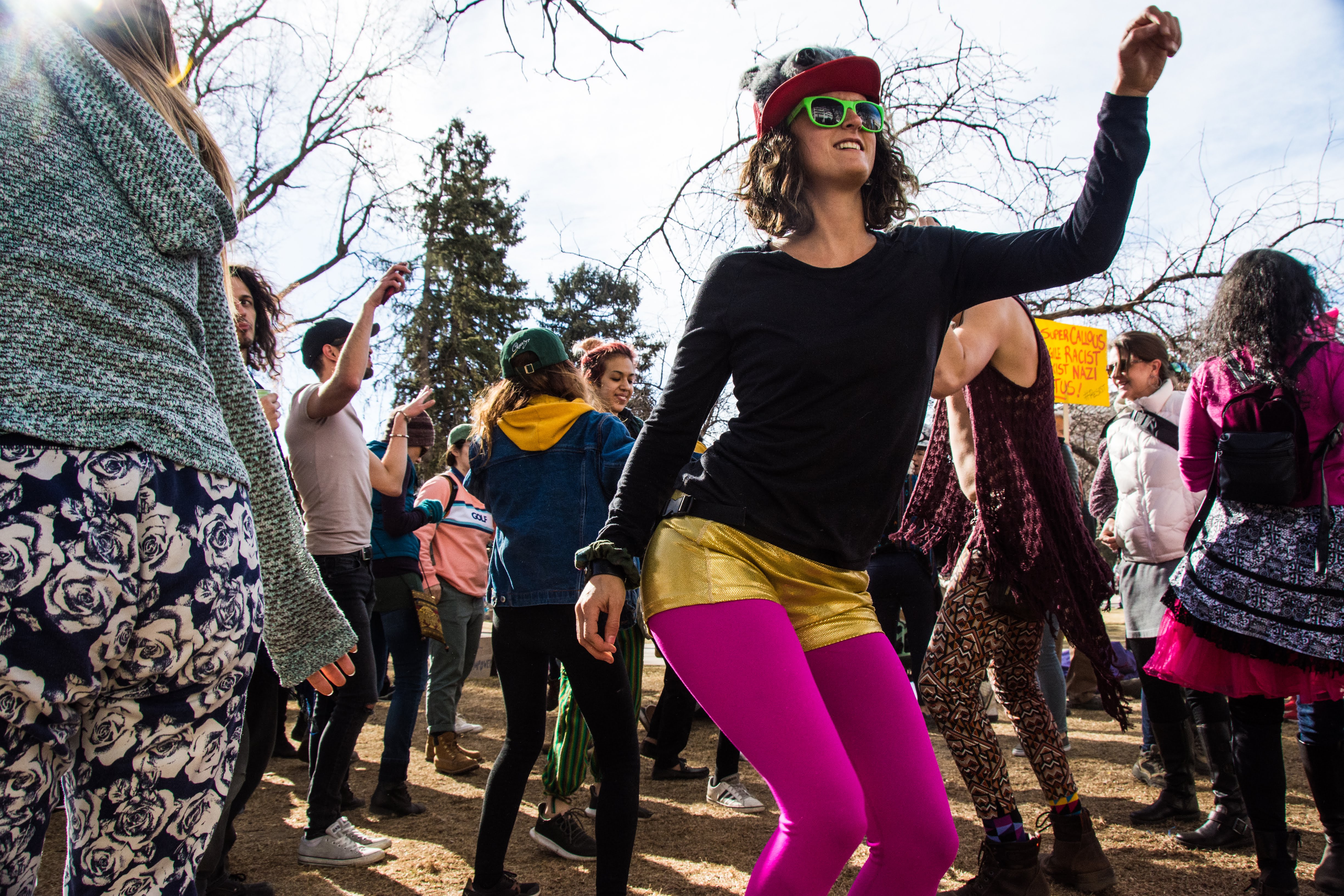
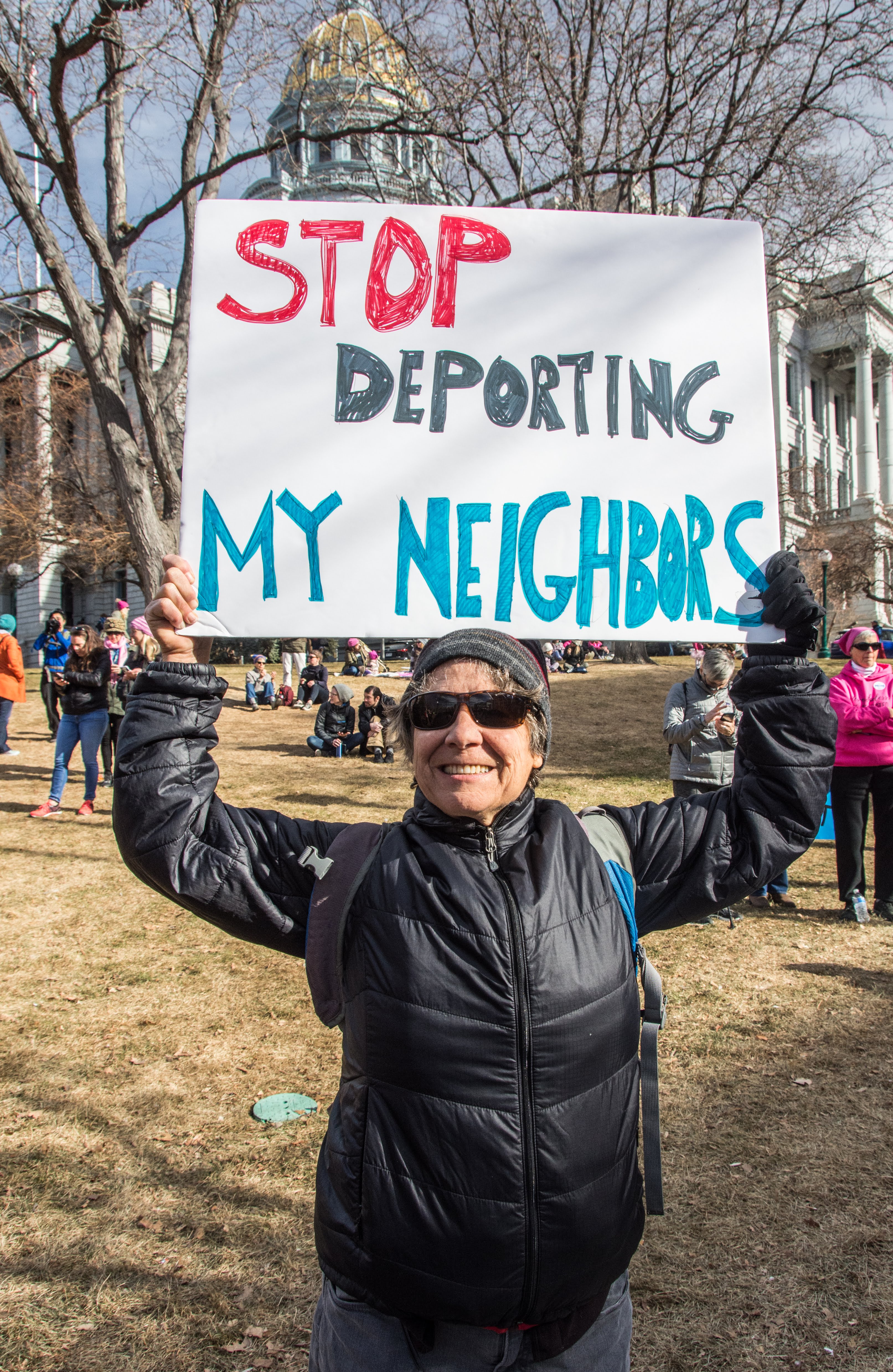
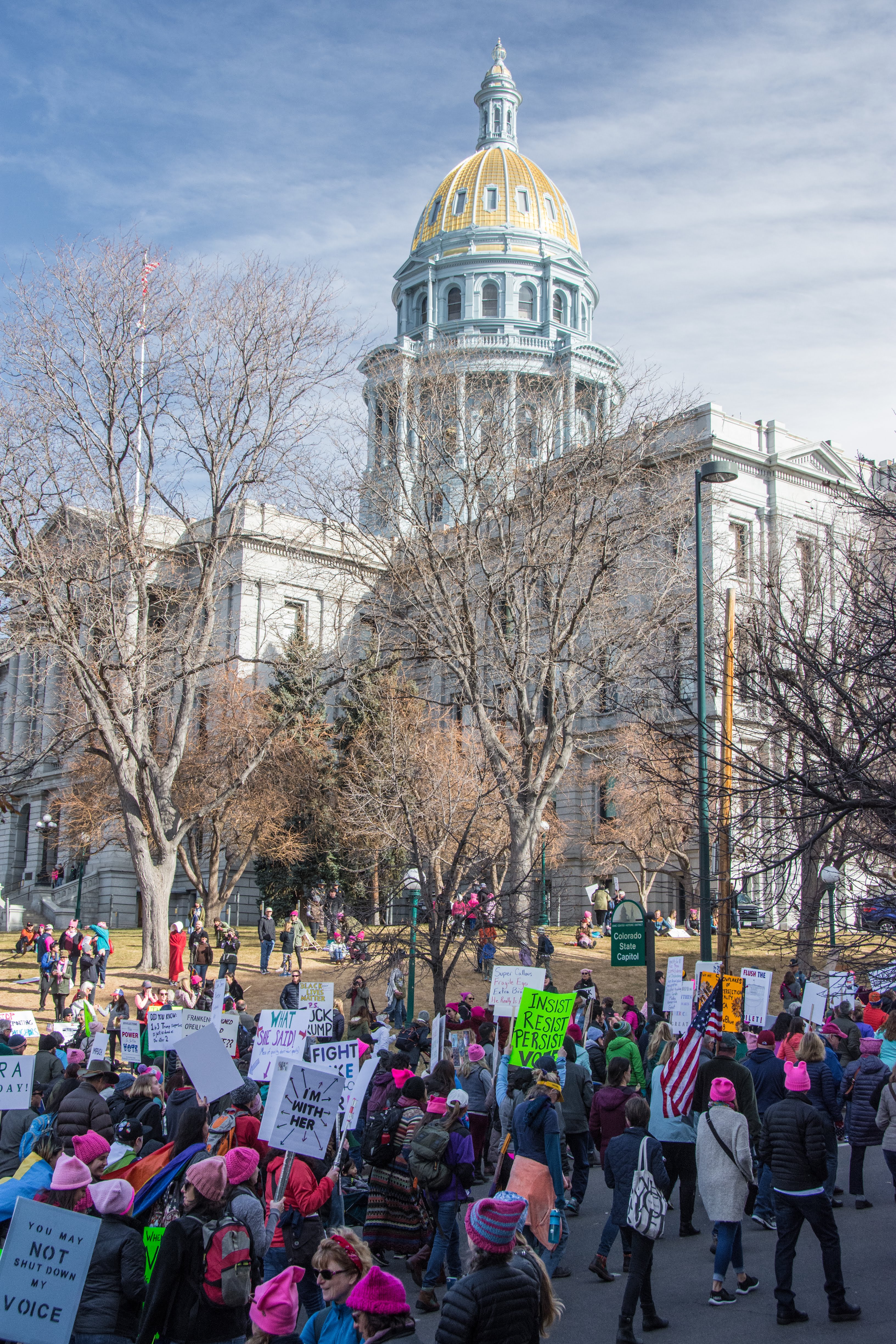
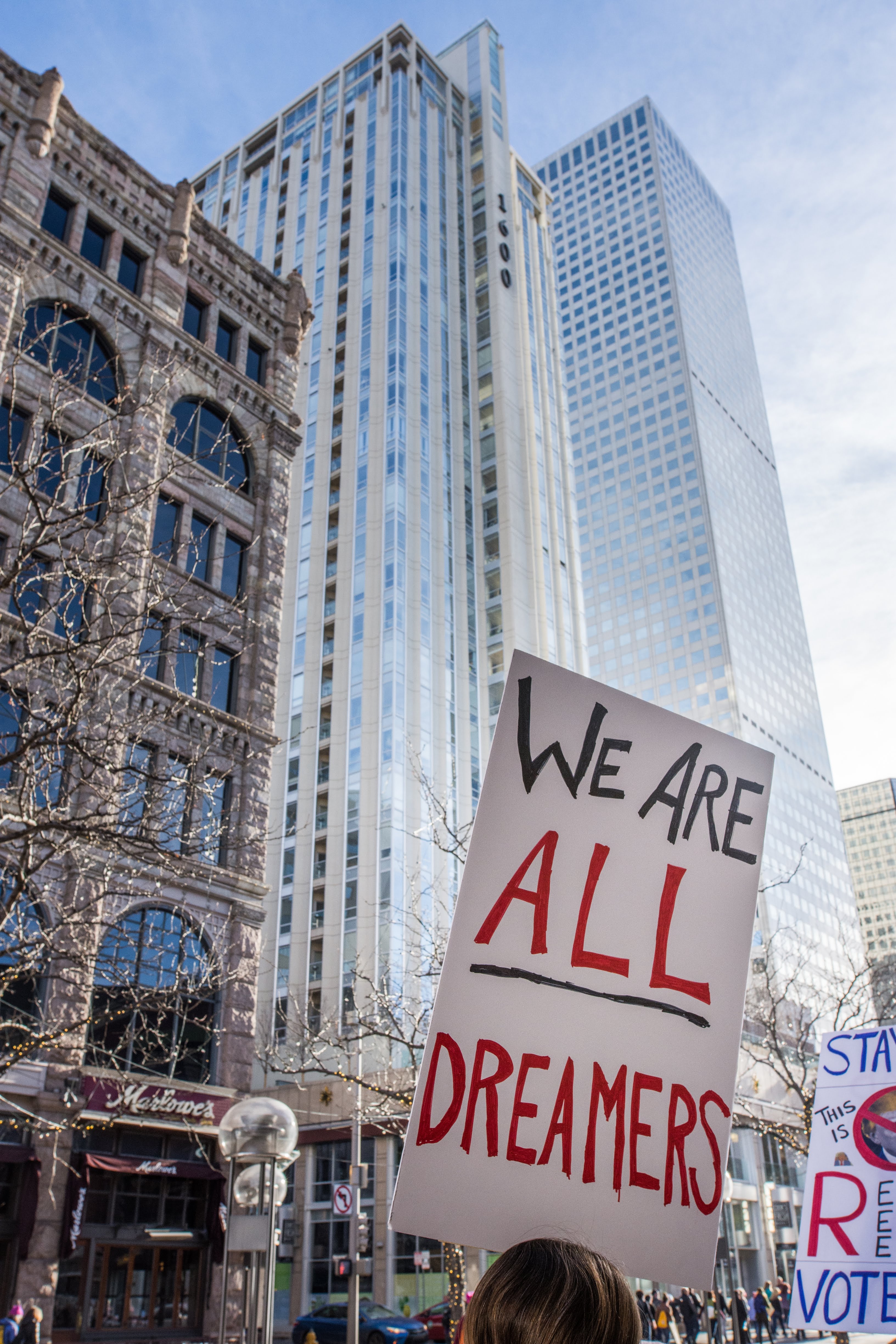
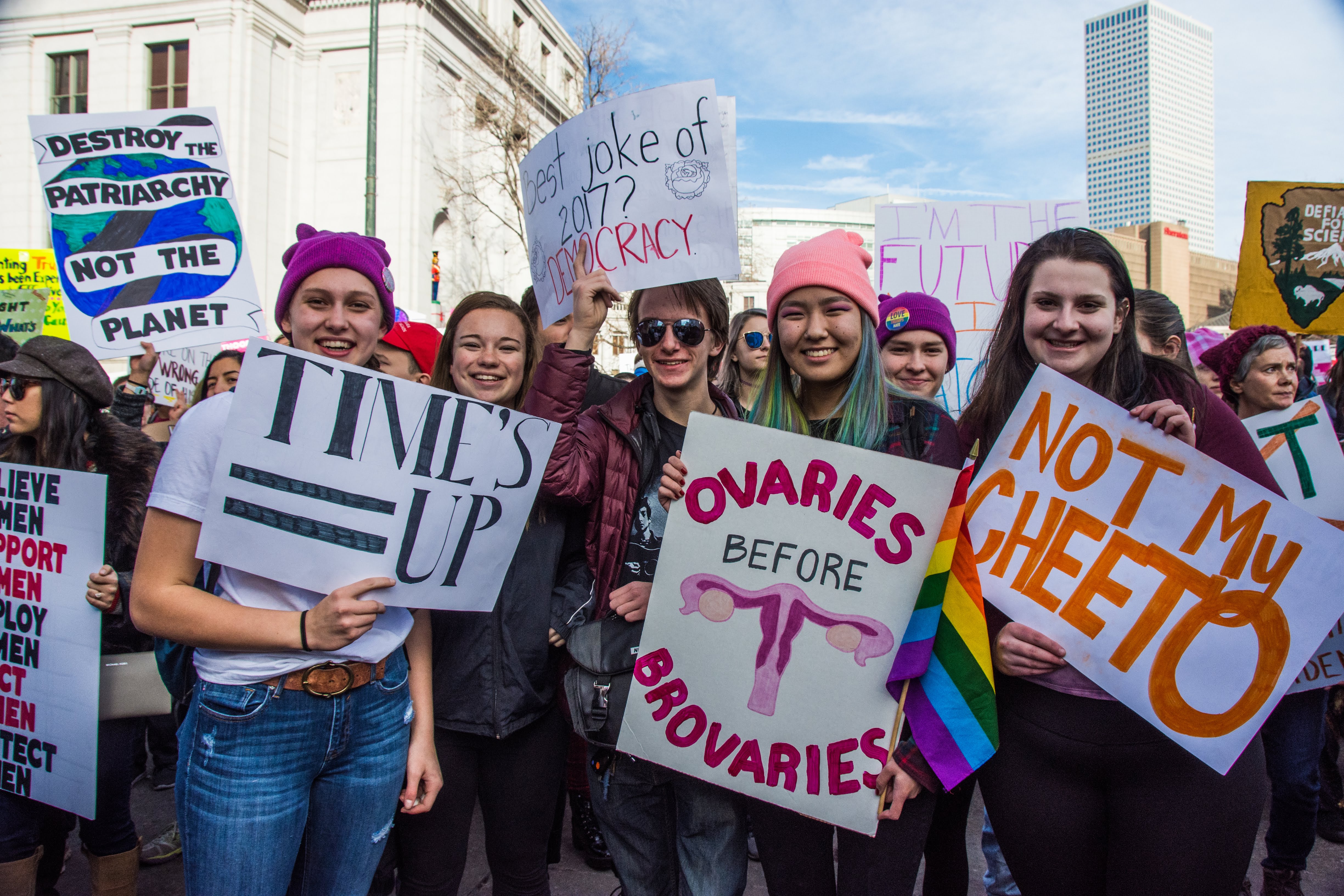
Contact Copy Editor and News Reporter Kristin Oh at kristin.oh@colorado.edu.
